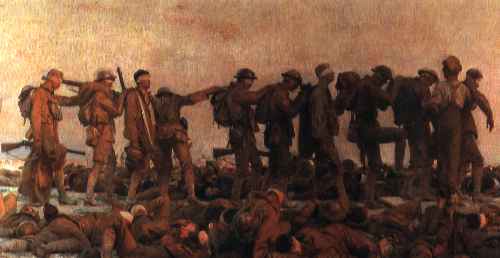Chemical Warfare: an Introduction to Mustard Gas | Chemically Speaking: the Structure of Mustard Gas | By Any other Name: Origins of Mustard Gas | In Flander’s Field: Mustard Gas Affects History | Agent of War to Anti-Cancer Drug: History Affects Mustard Gas | Taking the Next Step: More Sources on Mustard Gas
Every day Saddam remains in power with chemical weapons, biological weapons, and the development of nuclear weapons is a day of danger for the United States.
Sen. Joseph Leiberman, D-CT, Sept. 4, 2002
Weapons of mass destruction are just that. A weapon that has the ability to take out a large portion of the population. Although history has yet to decide the fate of the Iraq War, one thing is clear. Historically, chemical agents have been used to take out a large group of people with little harm sustained from the other side. World War I marks the first “successful” use of chemicals against the enemy, with later uses in World War II, South Africa, an Iraq to name a few.The type of agents included under the term “chemical warfare” include: blood agents, blister agents, nerve agents, pulmonary agents, incapacitating agents, and riot control agents. Currently, the Chemical Weapons Convention outlaws the production, stockpiling, or use of chemical weapons.
Gassed by John Singer Seargent

